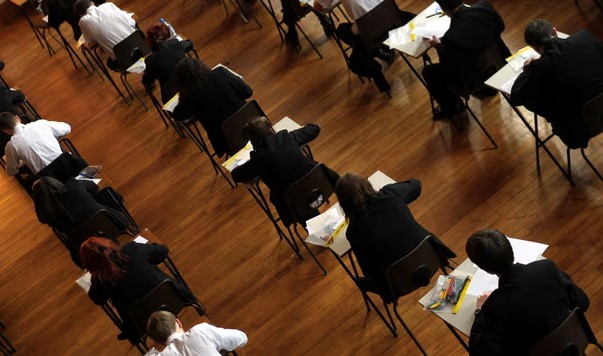GCSE grades have an excellent track record in predicting the future lives and careers of young adults, according to researchers, who found the exams were even more crucial for those from disadvantaged backgrounds.
Academics from Leeds and York universities found that the predictive power of GCSE results outstripped those of gender or later qualifications, including university degrees, in charting the development of young people from the age of 16 into their early 20s.
“What we can definitely say is that GCSEs have a considerable impact on how your life develops into your early 20s, and that the benefits from GCSEs are over and above the education someone obtains later,” said Alexandra Starr, a post-doctoral researcher at the University of York and one of the study’s authors.
“The main message I would say is that GCSE grades are important in real life. We always talk about whether exams are only important within the education system, to climb the next rung in the educational ladder. But it’s also important beyond that.”
The research, published on Thursday in the journal Developmental Psychology, comes as nearly 800,000 students in England, Wales and Northern Ireland prepare to sit their GCSE exams this spring.
The researchers interviewed 6,500 people aged 23, recording their GCSE grades and later qualifications such as A-levels and degrees, along with their current occupation, income and questions on their financial and emotional wellbeing, as well as other measures including family background.
While those with strong GCSE results also did well in terms of university entry and prestigious occupations, the results were particularly marked for those from disadvantaged backgrounds.
“It’s important to encourage children to perform well in school because it’s important for their overall future. And it’s important to acknowledge this is especially true for children from less privileged backgrounds,” said Starr.
“For them it is more important to obtain good grades at GCSE level, to then have further educational opportunities such as going to university and being admitted into the courses they want to study, compared to their more privileged peers, who might have more of a support system they can rely on.”


